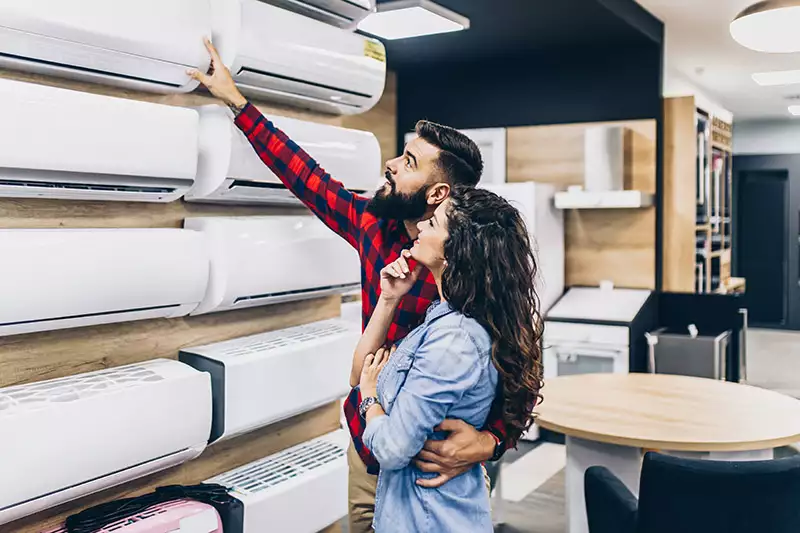Nonetheless, there are a lot of unknowns when investing in a new HVAC system. There are several important considerations, including the kind of system you require, the cost of a new system, and everything in between. You can pick the proper air conditioning system in Singapore for your house with the aid of this guide, which will walk you through the process step by step.
1. How Long Will It Take to Install?
You probably want the new air conditioner installed as soon as possible if you are intending to get one to replace a damaged or non-working one. Especially if it’s the middle of summer and the temperature outside is skyrocketing.
Air conditioner system in Singapore installation is often not fast operation. Coordination of electrical, plumbing, and ducting components, not to mention lengthy calibration and testing, may easily extend the installation procedure beyond a single day.
The operation might take several days if the system is very big or needs extensive ductwork modifications. So choose a company, that will detail the steps involved in installing your new air conditioner and provide you with an accurate estimate of when it will be finished.
2. Total Cost:
Knowing what you are getting into is especially important when investing in a piece of sophisticated equipment like an air conditioner. The installation estimate is the first step in learning how much your new system will cost. The price will vary based on a number of variables, including the unit’s location, the size and capacity you need, and any additional features you’d like to have.
In addition, if the ducting, wiring, ventilation, or controls are modified, it will have an effect as well. When deciding on an HVAC system, it’s crucial to keep costs in mind. But you do not want to skip steps that are important.
You should shop around and compare prices and systems to locate the one that works best for you. Furthermore, it is wise to inquire about the HVAC experts’ credentials, warranties, insurance, and installation requirements.
3. What Does the Noise Level Look Like?
The HVAC industry has done a fantastic job of creating systems that do not make extremely loud noises, but some degree of noise is still there. Be sure that your new HVAC system would not create any noise pollution before you purchase it. Be careful to examine the system’s noise levels. There is a range of tolerable noise levels for HVAC systems, measured in decibels (dB).
- A normal discussion in a living room has a noise level of about 50 dB.
- The typical noise level of a restaurant discussion is roughly 60 dB.
- The decibel level of a vacuum cleaner is about 70 dB, which is considered “annoyingly loud” by most people.
- The noise level of trash disposal is about 80 dB.
The decibel level of the HVAC system you choose should be no more than 60 dB for optimal noise reduction. Get in touch with the manufacturer of your HVAC unit if you need clarification on a specific model’s noise output.
4. What Modern Technology Do I Need?
Many modern air conditioners also include features that make your house more comfortable or help you save money. Variable-speed motors are an attractive option because they can run at a low speed continuously and then scale up when more power is required. The functioning of other systems is flawlessly silent, or they are made to work in perfect balance with furnaces, thermostats, and other HVAC devices.
5. How Big a Size Do You Require?
Your home’s energy efficiency and square footage will determine the size of the HVAC system you need. A smaller house will require a less powerful unit than a bigger one. Finding the right HVAC unit for your home requires an understanding of the capacity of air conditioning units and how they are evaluated.
Investing in a new HVAC system with insufficient heating and cooling capacity can result in uncomfortable environments. Too much heating and cooling capacity in an HVAC system may be wasteful as well. You need an optimal system.
6. What About the Ductwork in your House?
You should not disregard the ductwork’s condition in your house. There are several potential causes of HVAC equipment inefficiency. A home’s ductwork should be inspected thoroughly prior to installing a new heating, ventilation, and air conditioning system. You will be able to save money by going with a smaller unit since well-designed ducting improves efficiency.
A house may lose as much as 30 percent of its HVAC system’s heated and cooled air via poorly sealed joints in the ducting connecting different sections of ductwork. The efficiency of an HVAC system may be diminished by dust and other particles. Make sure the ductwork in the building is in great repair before installing a new HVAC system.
7. How Often Should Maintenance be Performed?
If you want your new HVAC system to last as long as possible and perform at peak efficiency, you will need to invest in regular maintenance. In most cases, manufacturer’s warranties will expire if they are not properly maintained.
Change out the air filters and clean the inside and outside of the unit as part of the tune-up process. Every 30-60 days, you should replace your filter. If you don’t keep up with routine maintenance, your heating and cooling system will have to work harder to achieve the desired temperature, which might wear it out faster.
By keeping the unit in good operating condition, the air quality is enhanced and preserved as well. The flexibility of today’s HVAC systems allows you to tailor them to your specific demands by choosing from a wide range of filters, air purification systems, humidification controllers, and ventilation options.

